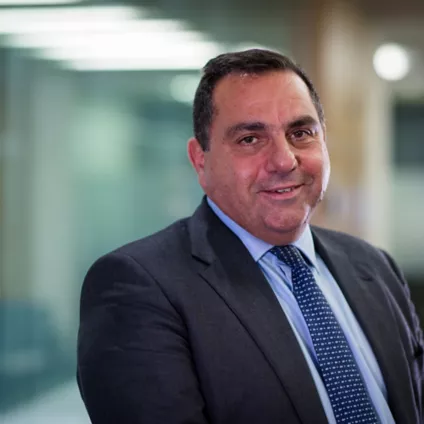The art of the apology: What KPMG’s Bill Michael got wrong

Last week saw the defenestration of KPMG UK’s chairman, Bill Michael. Days after making some controversial remarks at a ‘town hall’ meeting of employees, the abrasive Australian, having initially stepped aside pending investigation, caught the scent of the prevailing wind and resigned.
In some City circles, there has almost been a sense of relief, having watched Michael lurch through four years at the top of the accountancy giant, knowing he was bound to fall, but not knowing when.
The proximate cause of Michael’s fall came in the shape of his words at the online meeting on Monday. In a wide-ranging discussion, he tackled morale head-on in his inimitable style, telling employees to “stop playing the victim card”, and accused them of “moaning” about their circumstances during lockdown.
Read more: KPMG’s UK boss Bill Michael resigns after ‘moaning’ controversy
He disclosed that he had been meeting clients despite the public health guidance, and implied that others should have been doing the same. He went on to dismiss the concept of unconscious bias as “absolute crap”.
Even a straight-talking Aussie realised he had not been entirely on-message, and before the meeting had ended he had already apologised to attendees. He reinforced this obeisance with a deeply apologetic email, but its wording is worth noting for its sinuous presentation and obliquely precise meaning:
“I know that words matter and I regret the ones I chose to use today. I think lockdown is proving difficult for all of us. I am very sorry for what I said and the way that I said it.”
Note the following points. Firstly, he regrets the words he used, not their clear and unambiguous meaning. This is now a commonplace of public apologies—I’m sorry what I said has had a certain effect, which shifts the blame on to the recipient. Secondly, he expands the regret from himself to everyone concerned. Lockdown is challenging “for all of us”, which suggests that it should be used to excuse behaviour on all sides, not just his toxic remarks.
In the last sentence he comes close to what would once have been regarded as an apology—”I am very sorry for what I said”—but at the last minute he negates any sincerity by adding “and the way that I said it”, because, again, the method of communication can be blamed on those at the receiving end as much as on the issuer.
Taken together, these sentences are semantic junk.
They admit of so little sincere meaning that they point to one of two conclusions: either Michael did not feel particularly sorry for what he had said (and many colleagues and competitors will find that a comfortable conclusion), or else the evasion of responsibility has now seeped so deeply into corporate life and communications that even someone as plain-speaking as Bill Michael cannot help using these weaselly formulations as an instinctive response.
It is worth noting that this is not an isolated black cloud in Michael’s otherwise limpid professional sky. KPMG are going through a difficult period, with partners’ salaries declining and, worse, being outpaced by rivals, swingeing cuts in many areas (only partners and qualifying staff now have access to the company’s Financial Times subscription) and the exposure of an embarrassing diversity pay gap.
Read more: KPMG UK chair steps down after telling staff to ‘stop moaning’
Michael has been on the bridge at the time of these setbacks so must bear some responsibility, and many will not have been sorry to see him go. Nonetheless, he delivered himself to his enemies.
What, then, should he have said? Well, in an ideal world he would have thought, just before going to sleep on Sunday night, “Don’t be too hostile or aggressive at tomorrow’s meeting”. Once the words were out of his mouth, however, he had only one choice apart from swift resignation: total repentance. A strategy might have looked like this:
- “I’m very sorry for what I said. [EITHER] It was said in a fit of anger and does not represent my considered view [OR] The reaction from team members has caused me to reflect and realise that I have some lessons to learn.”
- “I’m very conscious of the difficulties many are having during this challenging period: we continue to work with you to make every helpful adaptation we can, and I want to emphasise the gratitude of all of those at board level for your continuing efforts.”
- “Everyone is learning. I seem to have further to go than many of you. But we realise as a company that the holistic experience of working for KPMG has suffered, and that must stop. Our people are the most valuable thing we have, and we are already working on a new corporate statement of purpose which encapsulated a post-Covid world and the changing priorities we now have.”
Let us be in no doubt: the most grovelling of apologies would not have been a get-out-of-jail-free card. But Michael should have realised the gravity of the offence he had given, accepted responsibility, and started immediately to think of how to take control of the narrative, beginning with the first letter of the first word of his conciliatory email. He didn’t—and maybe it would have been out of character for him to have done so.
There is a simple lesson for senior executives here: spot when you have committed a gross error, instantly draw a mental line under it, and devote all of your attention to moving on in a constructive and positive way, while acknowledging responsibility. It might not work, but it’s the best chance you have.